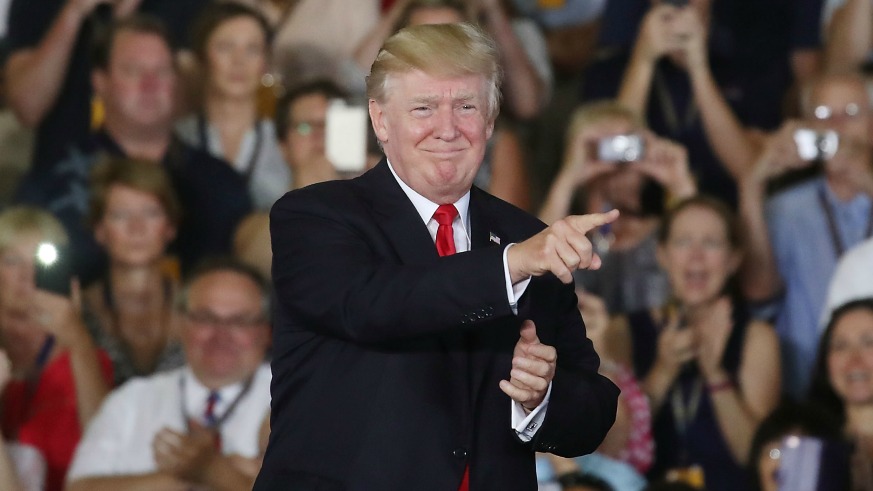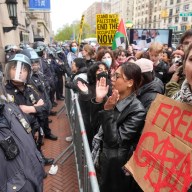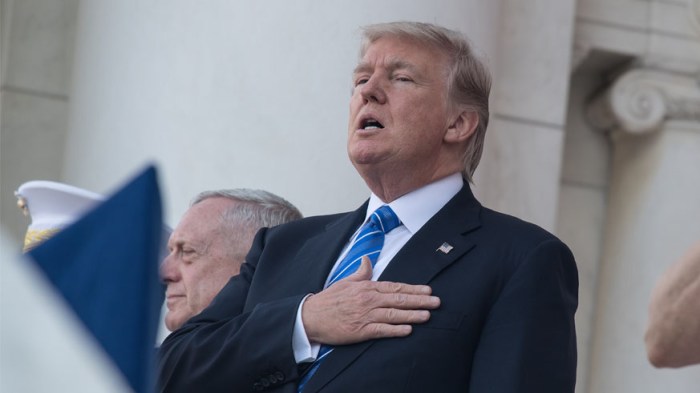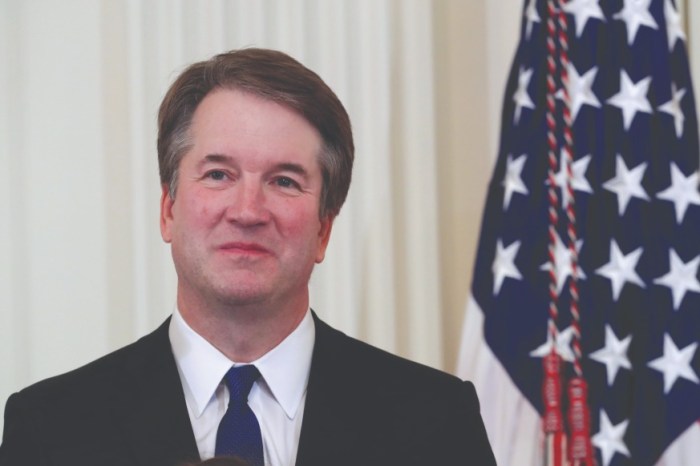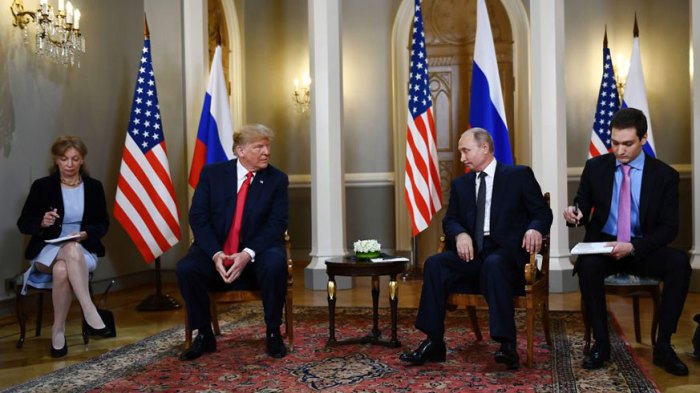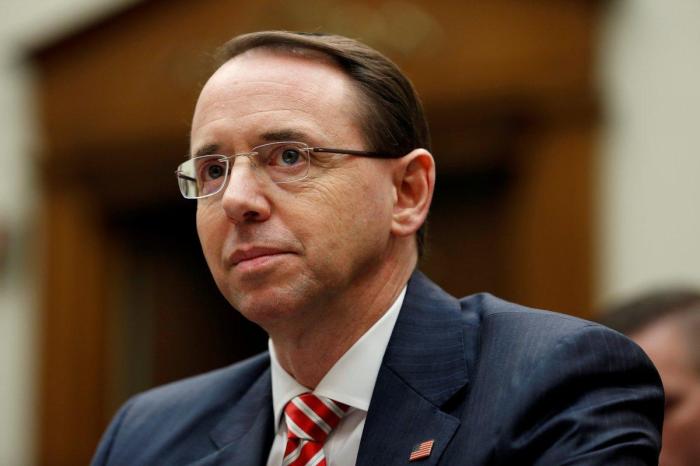After last week’s New York Times report last week that President Trump was asking his legal team about his ability to pardon his associates, his family and himself, the question arose: Could Trump personally escape charges in the Russia investigation with an unprecedented self-pardon? The argument: The Constitution’s section on presidential pardons doesn’t explicitly say that he can’t.
The president himself tweeted, “While all agree the U. S. President has the complete power to pardon, why think of that when only crime so far is LEAKS against us. FAKE NEWS.”
But agreement couldn’t be further than universal. And over the weekend, several significant opinions and one precedent emerged stating that presidential pardon power is the opposite of complete — and that the Constitution is clear that the president can’t pardon himself.
“The Constitution specifically bars the president from using the pardon power to prevent his own impeachment and removal,” said a trio including the nation’s top constitutional scholar and two top White House ethics experts — Harvard constitutional law professor Lawrence Tribe, former Bush White House ethics chief Richard Painter, and former Obama White House ethics chief Norm Eisen — in a Washington Post op-ed on Friday.
Their main argument: “Any official removed through impeachment remains fully subject to criminal prosecution. That provision would make no sense if the president could pardon himself … Self-pardon under this rubric is impossible.”
The trio added there isn’t a single case in history when a self-pardon was revealed to be legitimate, going back to a 1610 case that is the foundation of the Anglo-American legal tradition against self-dealing.
In summary: Snap!
A recently uncovered 1974 memo produced by the Office of Legal Counsel during the Watergate investigation warned President Richard Nixon that there was a “fundamental rule that no one may be a judge in his own case, and the president cannot pardon himself.”
Elizabeth Holtzman, a former New York congresswoman who served on the House Judiciary Committee during Watergate, agreed in her own Washington Post piece earlier this month. Her argument: During the Constitutional Convention, an amendment specifying that a president could not grant pardons in cases of treason — with the intent to discourage presidents from committing treason — was knocked down as unnecessary because a president guilty of that crime would be impeached and prosecuted. “The Constitution specifically provides for ‘indictment, trial . . . and punishment’ of a president under the criminal laws, in addition to impeachment,” she wrote.
In an MSNBC interview last weekend, Holtzman elaborated: If the president could self-pardon, he or she could commit treason or murder and live with impunity, which was not exactly what the constitutional framers intended.
On the Sunday talk shows, Trump attorney Jay Sekulow and new communications director Anthony Scaramucci denied that the president had asked about his pardon power.
The presidential pardon issue may not be the golden parachute it might have seemed when raised last week. Legal analysts have pointed out that anyone accepting a pardon from a president would be admitting to a crime, and that the president may not pardon co-conspirators.
And presidents do not hold the power to pardon themselves or associates from criminal charges brought by states. New York Attorney General Eric Schneiderman is said to be investigating the Trump organization’s financial dealings.

